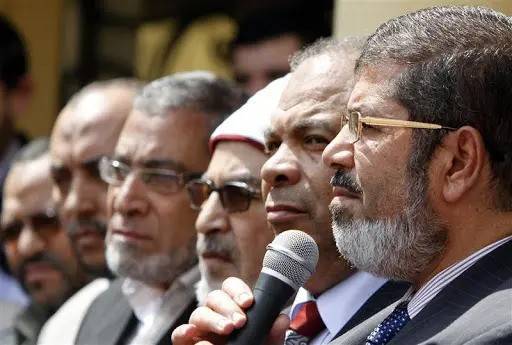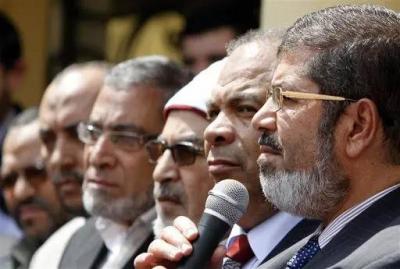Recently, there have been increasing calls from the Muslim Brotherhood to create chaos in Egypt, with a supposed "revolution" scheduled for last Friday, followed by another call for July 19. Additionally, they have escalated the activities of their electronic committees to spread rumors, provoke disturbances, and exploit certain crises to sway public opinion and rally for chaos.
Lieutenant-General Adel Azab, former head of the national security's file on the Brotherhood and a key witness in the espionage case involving ousted Egyptian President Mohamed Morsi, reveals to "Al Arabiya.net" and "Al Hadath.net" the reason behind this, confirming that it is linked to the number 11, which holds significance for the group since its founding. He anticipates that the Brotherhood will organize a major event this year, 2024.
He elaborates that the group resurrects itself and renews its organizational structure every 11 years, a cycle that has recurred since 1928. He explains further that the group was established as a religious organization in 1928, and after 11 years, in 1939, Hassan al-Banna announced at the Fifth Conference that the group would resort to violence, in a clear reference to its armed secret cells, known as the "special apparatus," which began executing terrorist operations that lasted another 11 years. This culminated in the 1948 decision by Prime Minister al-Nuqraashi to dissolve the group, leading to his assassination by one of the special apparatus's cells under al-Banna's command, who distanced himself from the leadership and declared to Egyptian society, "They are neither brothers nor Muslims," marking the end of that period with his death in 1949.
The senior security official continues that the Brotherhood resumed their activities in 1951 after the dissolution, in a period when Hassan al-Hudaybi served as the group's second leader, continuing for another 11 years until they became the first nucleus of the international organization in 1962. They established the Islamic Center in Geneva and the Islamic Center in Munich, led by Saeed Ramadan, the husband of al-Banna’s daughter. At that time, the American magazine "Newsweek" reported on the opening of the Geneva Islamic Center, expressing surprise at the participation of the American military attaché in the event.
From 2000 to 2011, the group was actively preparing to complete what they called the "Islamization of society" before moving on to the next phase, known as "empowerment and seizing power."
Lieutenant-General Azab adds, "From 1954 until 1965, following the Manshiyya incident and the second dissolution of the group, they continued for another 11 years until they formed the Sayyid Qutb organization, committing what is known as the great Brotherhood conspiracy, which involved bombing the Qanater el-Khairia and electricity towers to separate the Delta from the rest of the governorates. This confirms that the issue of dividing Egypt had long been executed by the Brotherhood for the benefit of Western powers, as detailed in case number 12/65, relating to state security."
He clarifies that since the release of the group’s leaders in the era of former President Anwar Sadat in 1972, and the declaration that they are a peaceful organization that renounces violence, the Islamic Group that assassinated Sadat in 1981 emerged from the Brotherhood. Organizationally, they focused on completing their structures, which took 11 years, participating in the People's Assembly elections for the first time in 1984, a period they called "the Islamization of society" according to their strategic plan.
He states that following the ousting of the Brotherhood in 2013, and their exit from the scene, another 11 years have passed, leading to the current year when the Brotherhood seeks to re-enter the scene and revive their presence. He expects a renewed escalation from the Brotherhood this year, affirming that their calls for demonstrations on July 12 were a "rehearsal" to gauge the Egyptian public's response and the state apparatus's readiness to handle these protests.
He concludes that although he anticipates the failure of these calls, complacency should not be an option, given the group's desperate attempts to maintain their existence, both among their elements and with those who work on their behalf abroad.




